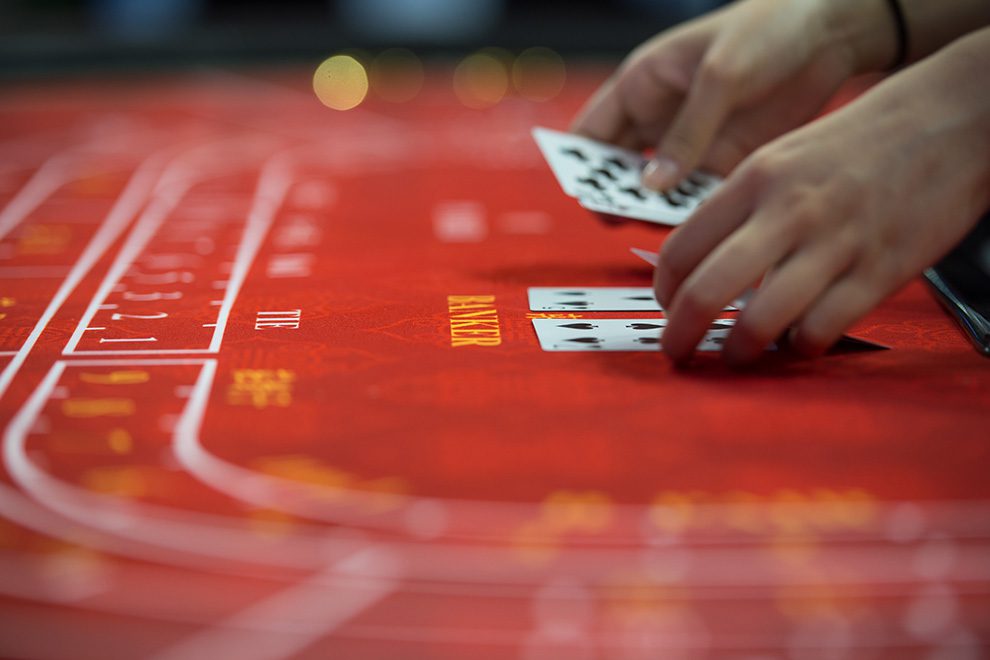It is common knowledge that gamblers from Greater China – namely from Mainland China, Hong Kong and Chinese Taiwan – make up the lion’s share of the casino clientele in Macao. While it is easy for managers to put Chinese clients all under the same label, research – including work by Dr. Penny Wan Yim King from IFT – suggests there are differences between these groups of customers, and that these differences ought to be addressed by service providers.
“For Macao’s casinos, understanding the subcultural differences of Chinese customers is critical, given that nearly 90 percent of Macao’s customers come from Mainland China, Chinese Taiwan and Hong Kong,” Dr. Wan wrote in an academic paper co-produced with Dr. Samuel Kim Seongseop and Dr. Statia Elliot. Dr. Wan’s colleagues are based, respectively, at Hong Kong Polytechnic University and at Canada’s University of Guelph. The trio’s research was featured in the Cornell Hospitality Quarterly, a top-level academic journal in the tourism field.
The researchers stated that while casino clients from different regions of Greater China “have much in common”, there were differences between them regarding behaviour while gaming.
“By understanding and addressing these differences, many of which are relatively subtle, the managers of Macao’s casinos can improve the quality of service offered to these guests,” the scholars wrote.
Their paper was based on the results of a survey of 302 casino staff members in Macao. It included workers from a selection of casinos, with each employee polled having a minimum of 3 years of working experience in the sector. The survey focused on behaviours of mass-market gamblers.
Spot the differences
The results suggested that casino customers from Mainland China were the most “sociable gamblers” among the 3 segments: they reportedly enjoyed gathering in groups to gamble, and liked to watch others gamble.
“They are also less likely to [accept the] challenge [of] new games… They do, however, enjoy new games when they are provided the opportunity to learn the rules, which suggests that casino employees should be trained to act more proactively in promoting and introducing casino games to these customers,” stated the study. The researchers noted that this could be particularly useful to improve the take-up of slot-machine play: about 95 percent of Macao’s overall gross gaming revenue currently comes from gaming tables.
An issue highlighted in the study was the perceived “disruptive behaviour” – as described by casino staff – of patrons from Mainland China. Commenting on this, the researchers stated that casino workers could undergo “cultural sensitivity training”, better to understand needs and behaviours of Mainland China clients.
“At the same time, we see the need for education, and setting expectations, for the customers,” the scholars added. They suggested that could be achieved through several channels, including posting notices inside casino halls, reminding guests of guidelines for personal conduct, and by issuing brochures to Mainland Chinese clients with information on that topic.
Some aspects of gambling behaviour were common to players from Mainland China, Hong Kong and Chinese Taiwan: namely the way they confirmed the number of gaming chips paid by dealers; and how patrons from each group held their respective chips. But the findings showed that Hong Kong customers were likely to take longer to place a bet compared with the other 2 groups.
The survey neither covered what differences, if any, existed in the average amount gambled by players in each group; nor did it look into length of play.
Focused versus passive
The casino clients from Hong Kong were described in the study as “focused gamblers”.
“Compared with the other 2 groups, Hong Kong’s gamblers showed higher tendencies to try new games; ask for an explanation of a game; and [to] show a ‘peak-and-valley’ [volatile] betting pattern. They like to ask for promotional gifts; like to complain to the dealer; prefer alcoholic drinks; and appear to prefer relatively tidy surroundings,” the study added.
Dr. Wan and her fellow researchers stated that, “since Hong Kong customers prefer the challenge of new games, they can potentially be big bettors and highly involved gamblers”, if given instruction on – and encouragement to play – new games. The scholars suggested casino managements could consider providing these customers with special sessions to explain game play.
The findings of the study also showed that Hong Kong clients emphasised service quality. “Failure to provide accurate services in casinos in terms of money exchanged, card dealing, and, perhaps by extension, food ordering or room booking, can be particularly dissatisfying for these customers, and we believe they would be more likely to complain,” the researchers wrote.
They added: “Finally, as compared with the other 2 customer groups in this study, Hong Kong customers are more likely to request promotional gifts when the [prize] pot gets large. Promotional gifts therefore can be an effective marketing tool to attract Hong Kong customers to visit the casino and bet big.”
Chinese Taiwanese customers were found to be “passive and game-focused” gamblers. “Although they may not spend as much as other Chinese customer groups in the gaming halls, they are relatively easier to serve, create less trouble and tip more – an important incentive to casino service staff,” the study found. The researchers suggested this could be a segment worth developing further, namely via focused marketing initiatives.
Dr. Wan and her colleagues stated that the findings of the survey showed “not all Chinese behave in the same way”. The results additionally pointed to the dangers of overgeneralising when defining cultures.
They added: “An understanding of subcultural differences will help casino and hospitality operators generally understand their customers’ behaviour, design efficient marketing strategies, and meet the needs of distinct cultural groups.”
The scholars stated that each of the segments included in their survey could be further subdivided into niches for provision of tailor-made services. “While the study is specific to Macao, we believe operators in other destinations will find this study of interest, as they look to the Chinese markets for growth,” they said.
More info
Dr. Samuel Kim Seongseop is an Associate Professor at Hong Kong Polytechnic University. He has a doctorate in recreation, park and tourism sciences from the Texas A&M University, in the United States. Dr. Kim has had published approximately 100 papers in top-level international journals. He additionally has presented approximately 100 academic papers at international conferences.
Dr. Statia Elliot is the Director of the School of Hospitality, Food and Tourism Management at the University of Guelph, in Canada’s Ontario Province. Dr. Elliot has a doctorate in management from Carleton University – also in Ontario – and her research interests cover several aspects of tourism marketing.









